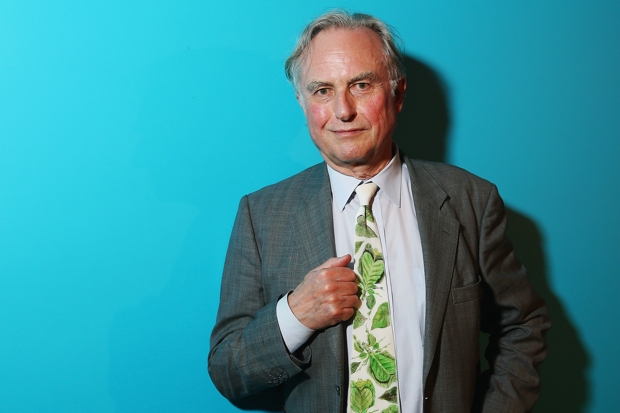It reflects rather well on Richard Dawkins that he still hasn’t joined his followers – the religious connotations of the word are intentional – in objecting to the Church of England tweet on Friday about praying for his recovery from a stroke.
Prayers for Prof Dawkins and his family https://t.co/KxBBkBrECk
— The Church of England (@churchofengland) February 12, 2016
Presumably the CofE did so on the basis of Christ’s exhortation to ‘Love your enemies, do good to those who hate you and pray for them that persecute and calumniate you’, as well as genuine affection for the old boy. But of course the kindly post got the inevitable response from more than 1,000 outraged Dawkinsites: ‘Sarcastic or ignorant?’ one asked.
This did not quite equal the response of the late Christopher ‘God is not Great’ Hitchens to the news that Christians were busy praying for his recovery from cancer. ‘What if I pulled through and the pious faction contentedly claimed that their prayers had been answered?’ he wrote crossly. ‘That would somehow be irritating. I don’t mean to be churlish about any kind intentions, but when September 20 [the Pray for Christopher Hitchens Day] comes, please do not trouble deaf heaven with your bootless cries. Unless, of course, it makes you feel better.’
But that was in turn surpassed by the preposterous Johann Hari, who so splendidly amalgamated journalism and pure fiction during his time at the Independent, and who declared: ‘I forbid everyone from praying for [Hitch].’ The inevitable upshot was that one’s impulse was to do just that, though I contained it.
Look, either God exists and may answer prayer, in which case praying for Prof Dawkins’ recovery is a good and kindly act or He does not exist and prayer is useless, in which case no harm is done. If Prof Dawkins pulls through, as I hope he does, then his Christian bedesmen can take a quiet pride in their work, and he can maintain that au contraire, the credit goes to the doctors. It’ll be a nicely pointless exercise. Because when miracles happen, as Thomas Aquinas observed, they happen quite as much in the ordinary workings of nature as in apparently spectacular interventions on the part of God.
Besides, Prof Dawkins is really not very much of a thorn in the side of Christians, not by comparison with more venerable atheists; for the funniest rebuttal of his book, The God Delusion, see the review by Terry Eagleton in the LRB, which famously begins: ‘Imagine someone holding forth on biology whose only knowledge of the subject is the Book of British Birds, and you have a rough idea of what it feels like to read Richard Dawkins on theology.’
In fact, the Prof occasionally reads like he nurses a soft spot for cultural Anglicanism. One of the more interesting dialogues between him and the late Hitch was published in the New Statesman last year, and it raised the interesting question from the Prof: ‘Do you ever worry that if we win and, so to speak, destroy Christianity, that vacuum would be filled by Islam?’
The answer from Hitch was no, but it’s a conundrum that faces quite a few contemporary atheists. The alternative to Christianity right now may not be their worldview; it may be the Islamic one. There’s a world out there – in Pakistan, for instance – in which atheists have far greater things to worry about than members of the Church of England praying for them. If I were Prof Dawkins, I’d count my blessings.







Comments